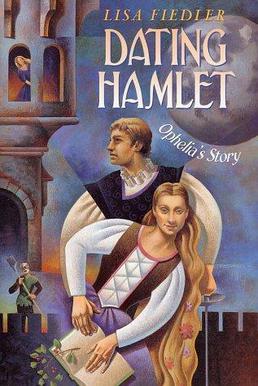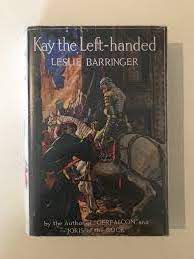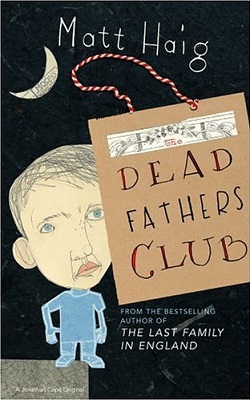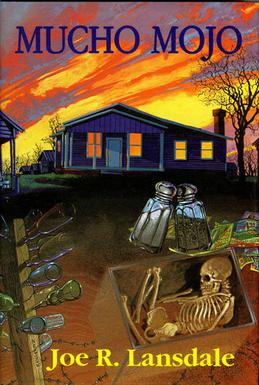
The Tragedy of Hamlet, Prince of Denmark, often shortened to Hamlet, is a tragedy written by William Shakespeare sometime between 1599 and 1601. It is Shakespeare's longest play, with 29,551 words. Set in Denmark, the play depicts Prince Hamlet and his attempts to exact revenge against his uncle, Claudius, who has murdered Hamlet's father in order to seize his throne and marry Hamlet's mother.

James Branch Cabell was an American author of fantasy fiction and belles-lettres. Cabell was well-regarded by his contemporaries, including H. L. Mencken, Edmund Wilson, and Sinclair Lewis. His works were considered escapist and fit well in the culture of the 1920s, when they were most popular. For Cabell, veracity was "the one unpardonable sin, not merely against art, but against human welfare."

Hamlet is a 1996 historical drama film and an adaptation of William Shakespeare's play Hamlet, adapted and directed by Kenneth Branagh, who also stars as Prince Hamlet. The film also features Derek Jacobi as King Claudius, Julie Christie as Queen Gertrude, Kate Winslet as Ophelia, Michael Maloney as Laertes, Richard Briers as Polonius, and Nicholas Farrell as Horatio. Other cast members include Robin Williams, Gérard Depardieu, Jack Lemmon, Billy Crystal, Rufus Sewell, Charlton Heston, Richard Attenborough, Judi Dench, John Gielgud, and Ken Dodd.

Amleth is a figure in a medieval Scandinavian legend, the direct inspiration of the character of Prince Hamlet, the hero of William Shakespeare's tragedy Hamlet, Prince of Denmark. The chief authority for the legend of Amleth is Saxo Grammaticus, who devotes to it parts of the third and fourth books of his Gesta Danorum, completed at the beginning of the 13th century. Saxo's version is similar to the one in the 12th-century Chronicon Lethrense. In both versions, prince Amleth (Amblothæ) is the son of Horvendill (Orwendel), king of the Jutes. It has often been assumed that the story is ultimately derived from an Old Icelandic poem, but no such poem has been found; the extant Icelandic versions, known as the Ambales-saga, or Amloda-saga are considerably later than Saxo.
Biography of the Life of Manuel is a series of novels, essays and poetry by James Branch Cabell. It purports to trace the life, illusions and disillusions of Dom Manuel, Count of Poictesme, and of his physical and spiritual descendants through many generations.

Miraz is a fictional character from C. S. Lewis's fantasy series The Chronicles of Narnia. He is the main antagonist in the book Prince Caspian, and is the uncle of the book's protagonist.

William H. Cabell was a Virginia lawyer, politician, plantation owner, and judge aligned with the Democratic-Republican party. He served as a Member of the Virginia House of Delegates, as Governor of Virginia, and as a judge on what later became the Virginia Supreme Court. Cabell adopted his middle initial in 1795—which did not stand for a name—to distinguish himself from other William Cabells, including his uncle, William Cabell Sr.

The Type One Super Robot is a 1986 children's book written and illustrated by the British author Alison Prince.

Jurgen, A Comedy of Justice is a fantasy novel by American writer James Branch Cabell, which gained fame shortly after its publication in 1919. It is a humorous romp through a medieval cosmos, including a send-up of Arthurian legend, and excursions to Heaven and Hell as in The Divine Comedy. Cabell's work is recognized as a landmark in the creation of the comic fantasy novel, influencing Terry Pratchett and many others.

Prince Hamlet is the title character and protagonist of William Shakespeare's tragedy Hamlet (1599–1601). He is the Prince of Denmark, nephew to the usurping Claudius, and son of King Hamlet, the previous King of Denmark. At the beginning of the play, he is conflicted whether, and how, to avenge the murder of his father, and struggles with his own sanity along the way. By the end of the tragedy, Hamlet has caused the deaths of Polonius, Laertes, Claudius, and Rosencrantz and Guildenstern, two acquaintances of his from childhood. He is also indirectly involved in the deaths of his love Ophelia (drowning) and of his mother Gertrude.
Andrew James Hartley is a British-born American novelist, who writes bestselling and award-winning fiction for children and adults. He also writes thrillers as Andrew Hart.

Dating Hamlet is a novel written by Lisa Fiedler, first published in 2002. It is an example of novels that rewrite Shakespeare's plays to reflect the concerns of teenagers.

The Cream of the Jest : A Comedy of Evasions is a comical and philosophical novel with possible fantasy elements, by James Branch Cabell, published in 1917. Much of it consists of the historical dreams and philosophical reflections of the main character, the famous writer Felix Kennaston. An early reviewer said it was more a series of essays than a novel.

Kay the Left-Handed is a historical novel by Leslie Barringer set in twelfth century England. It was first published in the United Kingdom by Heinemann in 1935; an American edition from Doubleday followed later the same year.

The Dead Fathers Club is a 2006 novel by Matt Haig. The book was published in the United Kingdom by Jonathan Cape and in the United States by Viking Press. The story is a retelling of William Shakespeare's Hamlet, and thus an example of intertextuality.

Mucho Mojo Is a mystery/crime novel by American author Joe R. Lansdale. This is the second in Lansdale's Hap and Leonard series of crime novels.
Basil Davenport (1905-1966) was an American literary critic, academic, anthologist, and writer of science fiction novels and other genres. He was a member of the Baker Street Irregulars literary society. He was born in Louisville, Kentucky on March 7, 1905, the son of Ira William Davenport and Emily Andrews Davison. He died on April 7, 1966, in New York County, New York, at the age of 61.

Beetle Boy is a 2016 middle grade novel written by M. G. Leonard, illustrated by Júlia Sardà, and published by The Chicken House and Scholastic.

John Lewis Englehardt III is an American fiction writer and educator.

The Raven Tower is a 2019 fantasy novel by Ann Leckie. Her first fantasy novel, it is based on the story of Hamlet. The novel recounts the story of Mawat, a prince seeking to overthrow his usurper uncle and regain his rightful place as the servant of a local god. He is accompanied by Eolo, his loyal retainer. The story is told by a nature deity in both a first-person narrative and a second-person narrative.
















